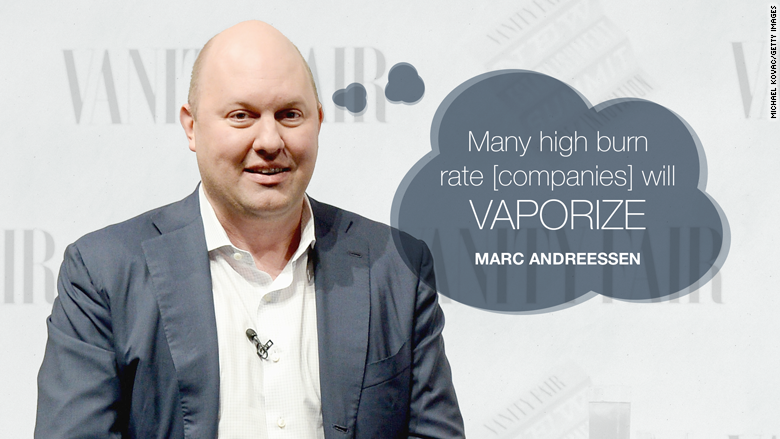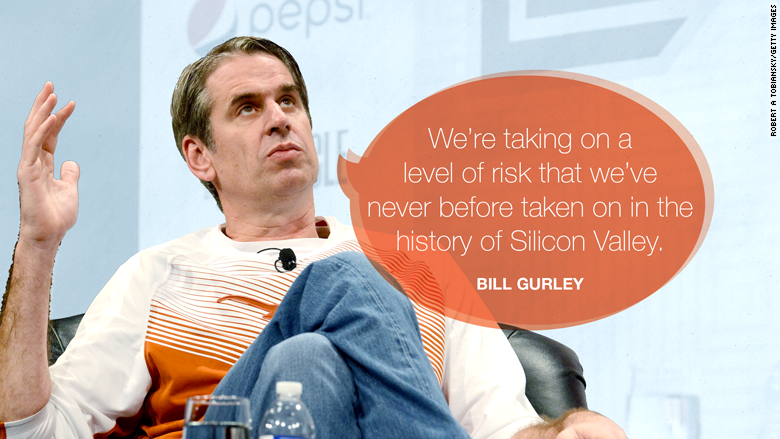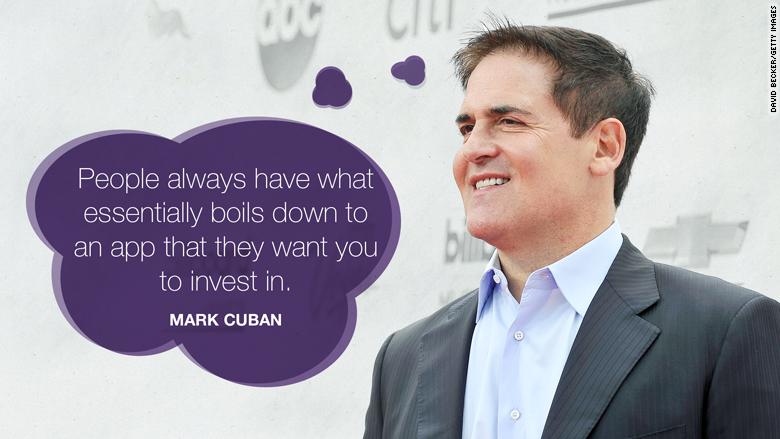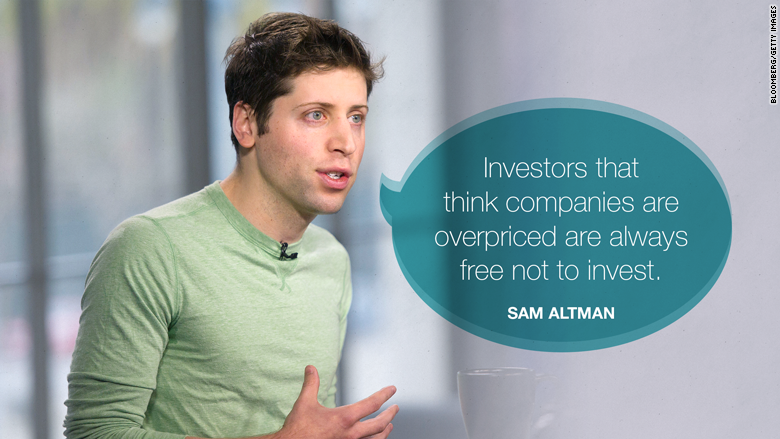Y Combinator's Sam Altman is just the latest to sound off on what he thinks of that question: Is there, or isn't there, a tech bubble?
Fledgling startups are capturing millions of dollars from venture capitalists within months of launching. Companies that aren't generating revenue have billion dollar valuations. These are just a couple of concerns that some of Silicon Valley's most powerful have weighed in on recently.
From startup burn rates, to skyhigh valuations, to hefty rounds of funding, here's what investors are saying about the future of startups.
Prominent venture capitalist Marc Andreessen said he's certain the market will turn. When it does, this will be a problem for tech firms with high "burn rates" -- a means of measuring how fast a company spends capital.

"When the market turns, and it will turn, we will find out who has been swimming without trunks on," Andreessen said in an 18-tweet rant in September.
Andreessen minced no words when he told startups to "worry," warning that the firms that do survive will be "few and far between."
But he's still singing the praises of VC funding for entrepreneurs who are pursuing an outcome they can't reach on their own.
"VC is very much not for every company. But for companies that want to do something big, VC = the most aligned capital there is," he tweeted.
Bill Gurley, venture capitalist at Benchmark Capital said we're in a "risk bubble."

Companies are netting millions but they are far from mature.
"Constraints and profitability help you make decisions better," Gurley told author Malcolm Gladwell during a keynote at SXSW. "Being able to do everything leads to poor business execution. Burn rates are higher than they've ever been. In Silicon Valley, you have more people employed by money-losing companies probably than you've ever had before."
Gurley -- whose firm invests in tech firms like Uber -- said Silicon Valley knows no fear, which isn't necessarily a good thing.
"I do think you'll see some dead unicorns this year," he said, referring to startups valued at over $1 billion.
Billionaire investor Mark Cuban thinks we're worse off today than in 2000.
"In the tech bubble, it was Broadcast.com, AOL, Netscape, etc. Today it's Uber, Twitter, Facebook, etc.," he wrote on his blog.
During the last bubble, investors were betting on public companies -- today, they're putting money into private enterprises. This is a dangerous proposition, according to Cuban, because there's no liquidity for these investments.

"I have absolutely no doubt in my mind that most of these individual angels and crowdfunders are currently underwater in their investments," he said. "The only thing worse than a market with collapsing valuations is a market with no valuations and no liquidity."
Altman spoke out on the topic in an attempt to silence the bubble talk once and for all.
"I'm tired of reading about investors and journalists claiming there's a bubble in tech," wrote Altman in a blog post this week.
Altman acknowledges that there have been some unreasonable early-stage valuations, but those are insignificant compared to the larger market.
He made several predictions about the next five years that would disprove the "bubble" theories. This included that six "unicorns" -- Uber, Palantir, Airbnb, Dropbox, Pinterest and SpaceX -- will be collectively worth over $200 billion by January 1, 2020. That's double what they're worth today, according to Altman.
He challenged a venture capitalist to disagree. Whoever is wrong owes $100,000 to charity.

That didn't quiet talk of a bubble, though.
Michael Arrington, founder of TechCrunch and general partner at CrunchFund, tweeted in response. "I'm not overly worried about a bubble, but VCs tossing around $100K personal wagers tells me something is off."

